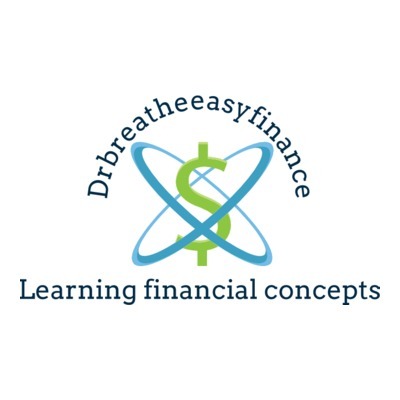Table of Contents
Get Out Of Debt Series: Episode 3
Fact! You cannot wish your debt away, it requires hard work and dedication. There are some who have gone through the same situation and have been successful in slaying debt – these people are called the DEBTINATORS or DEBT SLAYING NINJAS.
Our guest is none other than the frugal fellow. We met through blogging and he has been immensely helpful both through his content and his collaboration with others on social media. We are lucky to feature him on our site.
Bob Haegele is an IT professional who blogs at The Frugal Fellow. His blog primarily covers topics around personal finance with a focus on student loans. Having moved to various parts of the US, he is a bit of a nomad. He’s working toward financial independence while working, blogging, and traveling.
Our get out of debt series is to inspire others who are still in debt. After paying off our student loan debt which between Mrs. Breathe Easy and I, was upwards of $200,000. The actual amount paid with interest was close to $300,000. The strategies we used to pay it off was discussed in the article about getting out of student loan bondage.
Again, we are excited about this interview because, just like our last interview with “from one geek to another”, who became debt free at 27, Bob is also not a doctor. We love hearing from different socioeconomic status, as it further proves that this can be done regardless of your starting point financially.
PIN ME! PIN ME! PIN ME!
What do you do for a living?
I am currently a systems analyst working in health care IT.
Do you have a degree and are you currently using your degree?
Yes, I have a degree. And I would say I am using it because I majored in IT. In addition, the IT major at my school was in the college of business, so I was required to take several business courses. I had to do some programming but also took courses in subjects like project management and finance.
The type of work that I do now is actually a great fit for my degree because my job is more like a business systems analyst job. Even though it’s in IT, it’s not very technical. I don’t do any coding; instead, I troubleshoot issues with nurses, physicians, and other clinical users.
Sometimes, when we can’t resolve their issues, we have to work with the vendor, who will do the actual app development. So, in that way, it’s very much like a BSA job because I’m kind of a liaison between the coders and the clinicians.
Since my degree gave me exposure to both the business and the technical side of things, it works out pretty well.
How long have you worked in your field and what is your current salary range? Only if you want to, however, it is better to give our readers some perspective. If they are low-income earner vs high-income earner, the strategies might differ.
I’ve been in it for most of my career. Immediately after college, I briefly had a more general IT job, but I ended up getting laid off.
After that job, I got a job working in health care IT, right around when I turned 23. I’ll be 31 in February, so I guess it’s been almost 8 years. Time flies!
Currently, my salary is just over $70,000.
We hate student loans too. check out this post on how student loan is bondage and how you can break free today.
What major debt have you paid off that you feel is a hurrah moment for you?
My student loans are still the biggest debt payoff win for me. I went to a private university so obviously, it was very expensive. My parents did help me, but I paid for the majority of it on my own.
Describe to us in detail, the strategies you used to pay off that/those debt(s)
I didn’t actually take a step-by-step approach to kick my debt to the curb. Others can copy everything I did, but the order isn’t that important. I did write a post on my own blog about repaying my student loans if you’d like to check it out.
Here are some things I did:
-
I Lived With My Parents After College
This is the big one. I saved the best for first.
Yeah, it may not be the most glamorous of solutions, but it worked. My parents didn’t charge me rent, so that helped immensely. For most people, housing is the single biggest monthly expense (followed by transportation and food, in that order).
Being able to live rent-free made such a huge difference – especially in Chicago, where I am originally from and where my parents still live. Housing is definitely more expensive there than it is in a lot of cities (including where I live currently!).
I did that for nearly four years.
If I had lived in a one bedroom apartment for four years, I probably would have paid around $1,200/month.
That works out to roughly $1,200*48 = $57,600 saved!
Again, that is a very rough estimate, but I likely would have paid something in that neighborhood.
I should point out that I was making a lot less money at the time – a little under $40,000. That was a big factor in choosing to live with my parents. Still, it helped a lot.
But living with your parents isn’t the only option when it comes to reducing housing expenses. I realize living with Mom and Dad again won’t work for everyone. Other possibilities for reducing your housing expenses include:
- Getting a roommate/roommates.
- You could “house hack.” This is when you buy a unit meant to house two or three families – then live in one of them while renting out the others.
- Rent out extra bedrooms on Airbnb/VRBO/etc. I haven’t researched this one too extensively, but it could be viable depending on the market in your area.
- I Refinanced My Student Loans
I used SoFi for my student loan refinancing, but they aren’t the only lender that offers such services. I do recommend SoFi, but do your research if you are considering this.
One thing I should mention, that I didn’t realize when I originally wrote my post about repaying my student loans, is the option to apply for income-contingent repayment (ICR). ICR caps your payments at 20% of your expendable income or what you would pay on a fixed 12-year repayment plan – whichever is less.
Depending on the type of student loans you have, you could have a lot of different repayment options, so be sure to call your loan servicer if you aren’t sure what those options are.
If you have federal student loans, refinancing with a private lender like SoFi could mean giving up government protections. So, be sure you weigh all your options before making a decision.
We have a post on 10 things to consider before going through with loan consolidation. You will find it very helpful

-
I Paid Off My Car
The first car I ever had was a used car that I bought myself – although my Dad did cosign on the loan. Otherwise, the interest rate would have been insane, like 25% or something around there.
My interest rate ended up being around 5%. Granted, that was still less than my student loan interest rate of 7.8%.
Repaying my car was nice because I could then direct all my expendable income toward my student loans.
Okay, this is getting into a bit of the debt snowball vs. debt avalanche debate. But this was before I started learning about personal finance, so I just kind of did this on my own.
Nowadays, I am partial to the debt avalanche (repaying by loans with the highest interest rate first). Back then though, paying my car off first worked.
We have an awesome post where we touched based on the difference between the snowball method and the avalanche method. And thats just one of the 10 steps – 10 steps to get out of debt
-
I Worked Odd Jobs During School and Summers
This was helpful because it allowed me to cover food and other things I wanted while I was in college.
My housing expenses were rolled into my tuition, and I never owned a car while I was in school. So, no car payment to worry about back then.
Those are the main points. I covered a few more points in my blog post if you’d like to check it out.
We also have an article on 101 ways to save money. The article is over 8,000 pages long detailing a buffet list of many ways to save money that you haven’t considered before
Do you have any other debt left? What kind of debt? What are your goals to pay off this debt?
Nope. I am leasing a car, and if I check my credit report, it actually classifies the lease as a “loan.” But leases don’t charge interest, so I guess that doesn’t really count.
Other than that, I’m debt-free!
Do you budget? Why or why not? Which method do you use?
I don’t have an official budget with spreadsheets and all that.
That could cause some to scoff or roll their eyes, but my expenses are pretty simple. I don’t have kids and, being a frugal person, I don’t typically spend a lot of money on things I don’t need.
I also keep a close eye on my credit card statements online. So, overall, I don’t feel a monthly budget is really necessary for me. If my expenses were more complex, I might be so compelled.
Check out this rebuttal post on the limitations of budgeting and why it might not be right for everyone.
What percentage of your monthly income do you save?
It seems there are different ways to calculate this. But if you look at my pay stub and simply divide the amount going into my retirement accounts by my gross pay, you get about 27%.
However, I am also still building a cash reserve in a high-yield savings account (Ally), so the number is probably a little over 30%. I would like to get to 50% eventually, but we’ll see.
Do you have any passive income sources?
I do not currently unless you count investment returns.

Do you rent or own your own home/condo/apartment?
I rent a one-bedroom apartment. That said, I would like to make some changes when my current lease expires at the end of April. I’m not sure yet what I will end up doing – that depends entirely what is available – but I would like to get a roommate.
The apartment I am currently is fine – in fact, I like it a lot. But, simply put, having a roommate would make rent much cheaper, and that is one of my major steps toward reaching a 50% savings rate. As I mentioned earlier, housing is most people’s biggest monthly cost, so cutting that down is always a huge win.
Which side of the argument are you in terms of paying off mortgage vs investing?
When repaying debt in general, I like to use the 5% rule – in other words, if the debt has an interest rate of 5% or more, I make repaying that debt an absolute priority.
Luckily, mortgages typically have an interest rate below 5%. So if I had an interest rate of say, 3% on a mortgage, I would just make the minimum payments while investing as much as possible.
We have exactly the same rule. Are we twins? We discussed our rationale in this epic post, our most trafficked article – Dave Ramsey is Outdated, Try Our 12 Toddler Steps To Financial Freedom Instead.
However, it is worth noting that the interest rate has been rising. It might cross over the 5% mark soon. At that time, we might need to reassess our steps.
There you have it. Another highly motivated individual doing big things. He has inspired me, and I am sure he inspired you too. There is a reason why he is the frugal fellow.
Before you leave, please take a few seconds and share our article to inspire others.
Pin our image and don’t forget to comment.
Subscribe for our budget template and free E-book, whichever one you want or both.
I am a pulmonary and critical care doctor by day and personal finance blogger/debt slaying ninja by night.
After paying off close to $300,000 in student loan debt in less than 6 months into my real job, I started on a mission to help others achieve the same. There is no magic to this than to strap up and get it done. Some of the ways we achieved this include side hustle, budgeting, great negotiation skills, and geographical arbitrage.
When I was growing up, common knowledge in Nigeria is that there is one thing you cannot trust anyone else with, and you guessed it – your money.
Being frugal came easily to me based on my background. However, the concept of building wealth did not solidify in my mind until when I finished medical school. I wish I knew what I know now when I was 14. Still, I don’t know enough and I am constantly learning to improve my knowledge.
My goal is to reduce financial illiteracy among young professionals. I am catering to the beginners – babies and toddlers in financial literacy.









Steveark says
That was an interesting post. I think the main thing about moving back home is that it isn’t the child’s choice as to whether that is an option. That’s 100% up to the parents. If they aren’t completely comfortable with taking little birds back in the nest then they should say so and take that off the table. In our case we were fine with kids coming back home but only for a few weeks or in an emergency. We could not have handled the four year case at all with any of ours. Fortunately nobody wanted to anyway except our son and his wife when they were moving between cities and needed a short term place to stay until med school classes started. That was fun but a few weeks is much different than a few years. We’ve made the same thing available to other millennials who were temporarily needing a place to stay and have “adopted” a few new kids that way. It isn’t that it isn’t fun having your kids or others back in the house, it is, but if it goes on too long we felt we might be hindering them mastering that “adulting” thing. But this post has made me wonder what we would have said if one had asked, because getting out of debt is very adult. I love posts that make me think, this one certainly has!
admin says
I am very happy you gave this perspective. Sometimes we forget the inconvenience to the parents too. Thankfully, culturally for me, we are always welcomed at our parents home. It was actually a struggle for them to let us go and be by ourselves. I still get asked when I am coming back to Canada. I think I’ll be ok with a time-limited reason for my kids to move in. Thanks for stopping by.
xrayvsn says
I’m a big fan of Bob and it is nice to get some background story to even add to the persona. Staying with his parents was a smart financial move and certainly jump started the financial trajectory he is on.
Student loan payoff is a major milestone to achieve so congrats
admin says
I agree. I love his story a lot. Just the connection and getting to know other bloggers through this get out of debt series has been very rewarding to me.